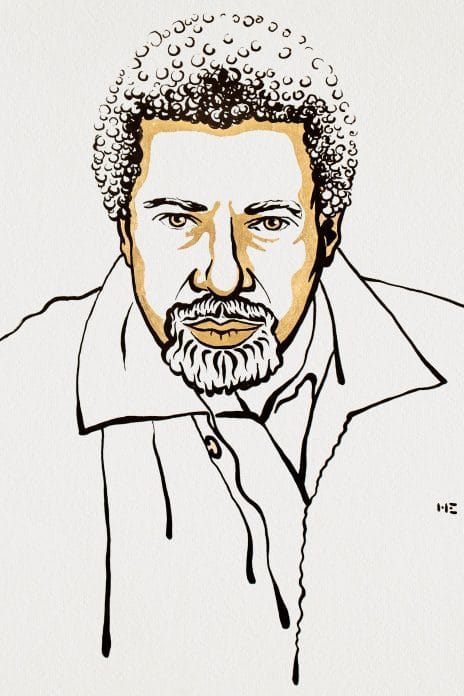Some Interesting Facts About Abdulrazak Gurnah, The Nobel Prize-Winning Author
Updated: June 19, 2024
Published: November 13, 2021

Winner of the Nobel Prize in Literature for 2021, Abdulrazak Gurnah, is the first Black writer since 1993 to have been awarded this honor–Toni Morrison being the last to have received the honor. In fact, in the award’s history spanning 120 years, Gurnah represents just the fourth Black person to receive the award. From his personal experience as a refugee, he has been able to tell many stories of loss, relocation, dislocation, and colonialism unknown to many. As one of the very few African winners of the award, Gurnah shares his unique life experiences and perspective through his exceptionally well-written words that inform and engage readers to hopefully change the world for the better.
Currently, there is a lot of buzz about Gurnah’s background and experience. Indeed it is essential to understand where he comes from to make any sense of his writing style and the stories he chooses to tell that captivate the hearts and minds of so many readers worldwide. Here is a brief overview of some interesting facts about his life:

Getting to Know Abdularazak Gurnah
Born in 1948 on the island of Zanzibar (which is now a part of Tanzania), Abdularazak Gurnah’s early life was closely linked with the 1964 revolution in Zanzibar in which citizens of Arab origin (Muslims) faced persecution.Gurnah fled persecution and arrived in England as a student at the young age of 18. Despite his first language being Swahili, he began to tell stories and write in English. In 1987, he published his first novel entitled Memory of Departure. The coming-of-age novel tells the story of protagonist Hassan Omar, a poverty-stricken 15-year-old who is living in a cycle of violence and despair. The hero’s struggle showcases what it is like to overcome the colonial struggles of living in Third World Africa, which can be seen as emblematic of Gurnah’s very own journey leaving Zanzibar.
According to his own retelling of his past, he was unaware that he was even considered an asylum seeker or refugee at the time of his arrival in Britain. And yet, he persisted in the country, earned his PhD, and became a professor of English and Postcolonial Literature at the University of Kent. Nowadays, he is living as a retired professor in Canterbury, England.
Along with the recognition and praise of winning the Nobel Prize, he has received 10m Swedish kronor as prize money (equivalent to just over $1 million) from the estate of Alfred Nobel, who created the Nobel Prize as part of his will when he passed away in 1895.
What Does Gurnah Write About?
According to the Swedish Academy’s citation, Gurnah received the award for “his uncompromising and compassionate penetration of the effects of colonialism and the fate of the refugee in the gulf between cultures and continents.” His catalog consists of 10 published novels and short stories. From his first novel Memory of Departure in 1987 to his most recent, Afterlives (published in 2020), Gurnah has told the story of colonialism in East Africa and covered topics such as exile, dislocation, and migration.
For example, his novels Memory of Departure, Pilgrims Way, and Dottie share insights and different perspectives about the immigrant experience in contemporary Britain. Paradise, his fourth novel, was shortlisted for the Booker Prize for Fiction and is set in colonial East Africa during World War I. His bibliography is strung together by common themes surrounding issues of identity and displacement, especially with relation to the effects of slavery and colonialism.
- Afterlives (2020)
- Gravel Heart (2017)
- The Last Gift (2011)
- The Cambridge Companion to Salman Rushdie (2007)
- Desertion (2005)
- By the Sea (2001)
- Admiring Silence (1996)
- Paradise (1994)
- Essays in African Literature: A Re-evaluation (1993)
- Dottie (1990)
- Pilgrims Way (1988)
- Memory of Departure (1987)
Along with winning the Nobel Prize for Literature in 2021, he is also the recipient of the 2006 Commonwealth Writers Prize, 2001 Los Angeles Times Book Prize (Fiction), and the Booker Prize for Fiction in 1994.
Gurnah’s Reaction to his Win:
Upon receiving the Nobel Prize, Gurnah expressed that he felt “surprised and humbled.” He believes that by winning this eminent award, important issues regarding colonialism and the refugee crisis will be “discussed” as “people are dying [and] people are being hurt around the world.”
The chairman of the Nobel Committee for literature referred to Gurnah as “one of the world’s most prominent post-colonial writers.” He expressed that his work “gives us a vivid and very precise picture of another Africa not so well known for many readers….” When sharing her experience reading Gurnah, fellow African author Laila Lalami posted on Instagram saying, “His sensitive exploration of belonging, his keen eye for how per affects human relationships, his beautifully crafted sentences, and his humor drew me to his novels and made me a devoted reader of his.”
Sadly, despite the critical stories that Gurnah’s books tell, they are not required reading in Zanzibar, nor are they widely well-known. Additionally, many of Gurnah’s novels are out of print and not widely available, including in the U.S. Plus, current supply chain issues are further affecting the distribution of his books, so even though Nobel Laureates tend to witness boosted book sales after being awarded, only time will tell how the win will affect Gurnah’s readership.
